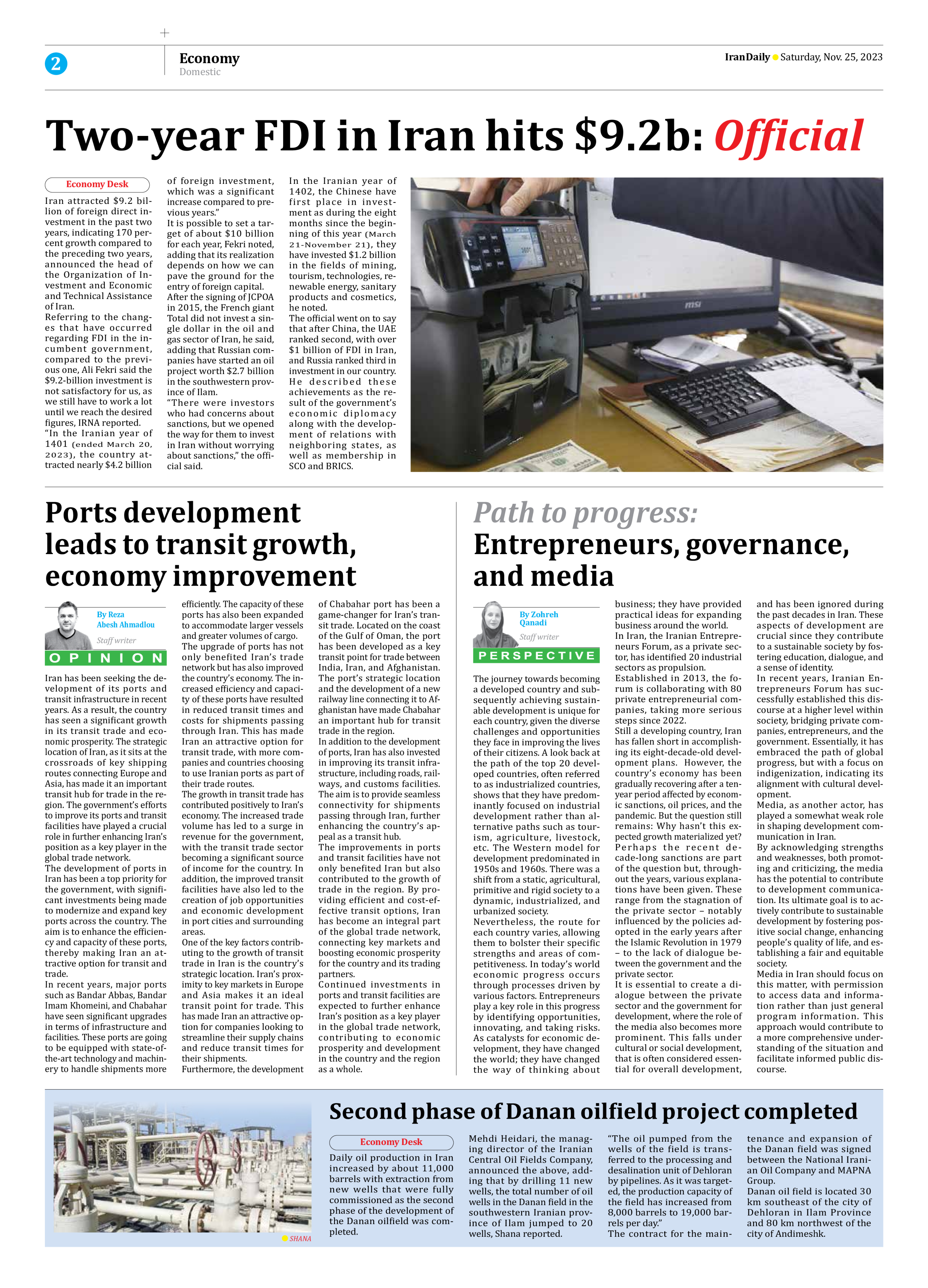
Path to progress:
Entrepreneurs, governance, and media
By Zohreh Qanadi
Staff writer
The journey towards becoming a developed country and subsequently achieving sustainable development is unique for each country, given the diverse challenges and opportunities they face in improving the lives of their citizens. A look back at the path of the top 20 developed countries, often referred to as industrialized countries, shows that they have predominantly focused on industrial development rather than alternative paths such as tourism, agriculture, livestock, etc. The Western model for development predominated in 1950s and 1960s. There was a shift from a static, agricultural, primitive and rigid society to a dynamic, industrialized, and urbanized society.
Nevertheless, the route for each country varies, allowing them to bolster their specific strengths and areas of competitiveness. In today’s world economic progress occurs through processes driven by various factors. Entrepreneurs play a key role in this progress by identifying opportunities, innovating, and taking risks. As catalysts for economic development, they have changed the world; they have changed the way of thinking about business; they have provided practical ideas for expanding business around the world.
In Iran, the Iranian Entrepreneurs Forum, as a private sector, has identified 20 industrial sectors as propulsion.
Established in 2013, the forum is collaborating with 80 private entrepreneurial companies, taking more serious steps since 2022.
Still a developing country, Iran has fallen short in accomplishing its eight-decade-old development plans. However, the country’s economy has been gradually recovering after a ten-year period affected by economic sanctions, oil prices, and the pandemic. But the question still remains: Why hasn’t this expected growth materialized yet?
Perhaps the recent decade-long sanctions are part of the question but, throughout the years, various explanations have been given. These range from the stagnation of the private sector – notably influenced by the policies adopted in the early years after the Islamic Revolution in 1979 – to the lack of dialogue between the government and the private sector.
It is essential to create a dialogue between the private sector and the government for development, where the role of the media also becomes more prominent. This falls under cultural or social development, that is often considered essential for overall development, and has been ignored during the past decades in Iran. These aspects of development are crucial since they contribute to a sustainable society by fostering education, dialogue, and a sense of identity.
In recent years, Iranian Entrepreneurs Forum has successfully established this discourse at a higher level within society, bridging private companies, entrepreneurs, and the government. Essentially, it has embraced the path of global progress, but with a focus on indigenization, indicating its alignment with cultural development.
Media, as another actor, has played a somewhat weak role in shaping development communication in Iran.
By acknowledging strengths and weaknesses, both promoting and criticizing, the media has the potential to contribute to development communication. Its ultimate goal is to actively contribute to sustainable development by fostering positive social change, enhancing people’s quality of life, and establishing a fair and equitable society.
Media in Iran should focus on this matter, with permission to access data and information rather than just general program information. This approach would contribute to a more comprehensive understanding of the situation and facilitate informed public discourse.







